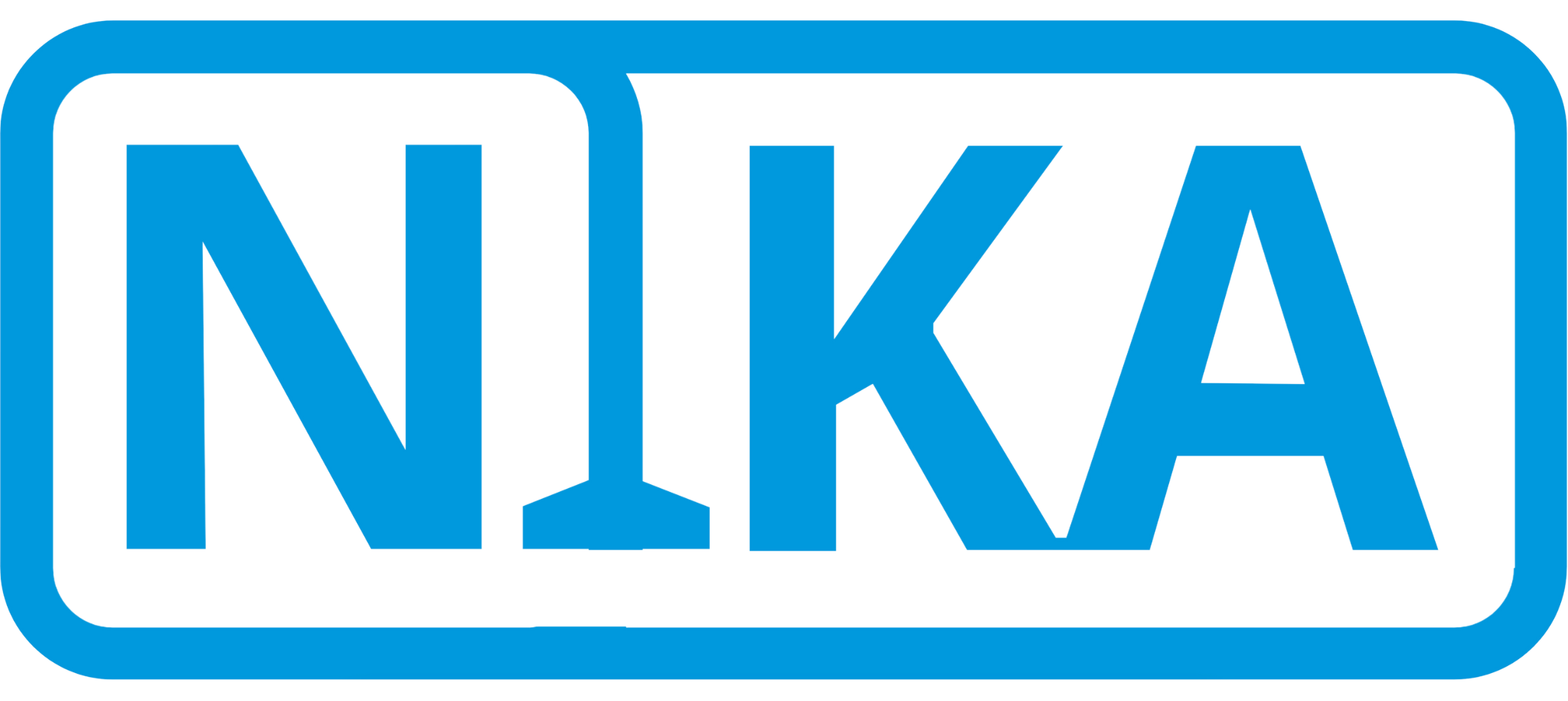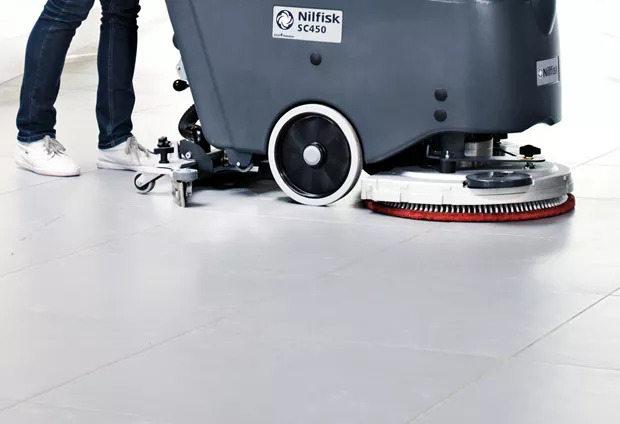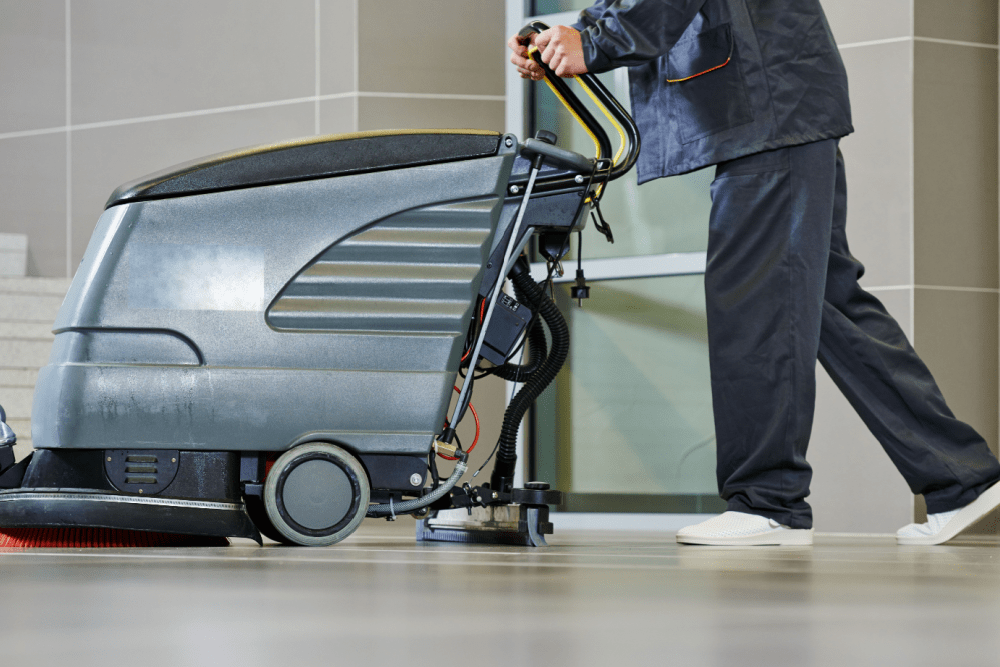Your cleaning equipment was probably expensive! And yet, they are a necessary piece of equipment to help keep your work areas clean and hazard free. It is important to understand how to use and maintain your equipment to its full potential. In other words, max and tax the machine to get the best use and best life out of your equipment – ensuring maximum efficiency across the board.
Maintenance
Maintenance is something that can get overlooked – especially when things get busy. It is important to have a maintenance schedule for your equipment. Regular maintenance will keep your machine running smoothly – preventing large repairs in the future! Maintenance is not meant to be scary and can be done quite easily. To start, create an cleaning/maintenance standard operating procedure (SOP) for your equipment. Something as simple as just wiping your machine down at the end of every shift helps to keep dirt and debris from building up and getting into the internals of the machine.
Additionally, a good thing to add to your SOP is a checklist for your machine components. Start from the top and work your way down. Look for any dents, loose bolts, and or defects. Are there any abnormal sounds or smells? If you do hear any new strange noises or smell anything abnormal, shut the machine down immediately, disconnect it from the power source and run through your checklist. If not solved, then give us a call us at NIKA Sales. It helps to keep a record of these inspections with a checklist. You can use the checklist to share the problem with your technician when they come for maintenance or repairs!
When using your machines there are some best practices that can be used to help the equipment to keep working longer and to work more efficiently.
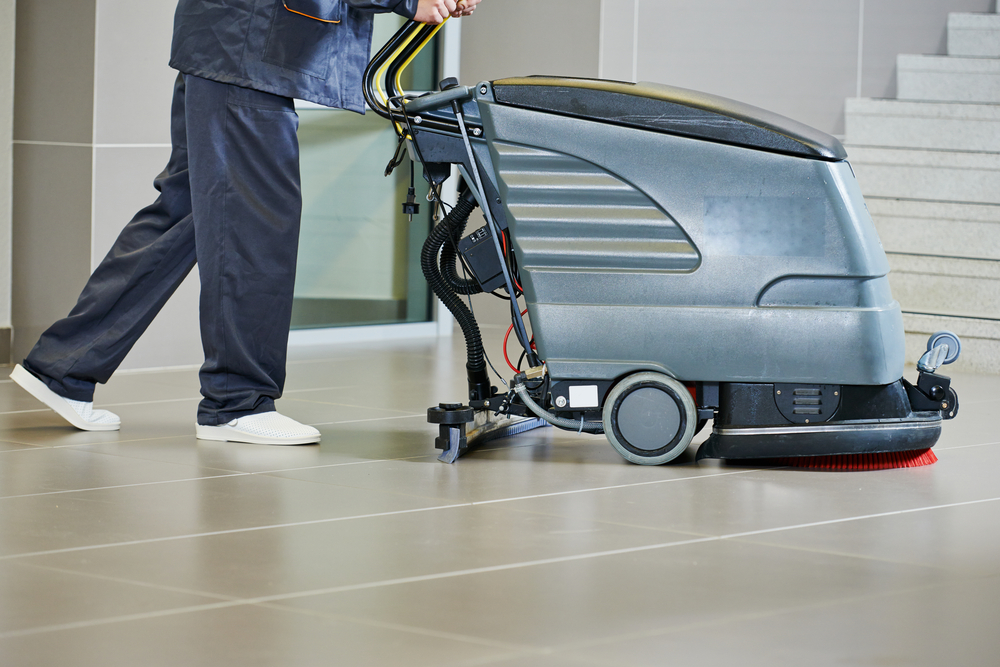
Industrial Vacuum Care
When using your industrial vacuum make sure that you perform what we call a “shutdown, shakedown”. After the vacuum is shut down, grab the shaker handle and move it up and down forcefully for 15 seconds. This will shake the filter and remove any debris, knocking it into the container and off of the filter. The cleaner the filter, the more effective the machine.
Additionally, it is crucial to establish a routine maintenance schedule for your industrial vacuum. Regularly inspect the vacuum’s hoses, belts, and filters for signs of wear or damage. Replace any worn-out components promptly to ensure optimal performance and prevent potential breakdowns. Proper storage is also essential to prolong the lifespan of your industrial vacuum.
Store the equipment in a clean and dry environment to prevent dust and moisture from compromising its functionality. Lastly, provide adequate training to operators on the correct usage and maintenance procedures to maximize efficiency and promote a safe working environment. By adhering to these comprehensive best practices, you not only enhance the effectiveness of your industrial vacuum but also contribute to its longevity and overall reliability.
Auto Scrubber Care
Your auto scrubber squeegee blades should be checked regularly for wear and tear & proper adjustment. If they get worn or stiff, this can cause inefficient cleaning as the unit will not be able to remove the dirty water properly. Likewise, if the blades are out of adjustment, they can cause improper recovery.
Moreover, it is essential to pay close attention to the condition of the brushes on your auto scrubber. Inspect the brushes regularly and replace them when the bristles become frayed or worn. Well-maintained brushes ensure effective scrubbing and prevent streaking on the cleaned surface. Additionally, monitor the water and detergent levels in the machine to guarantee consistent cleaning performance.
Empty and clean the recovery tank regularly to prevent the buildup of dirt and debris, which can impede the machine’s functionality. Lastly, provide comprehensive training to operators, emphasizing the correct operation and maintenance procedures for the auto scrubber. This proactive approach not only enhances cleaning efficiency but also extends the lifespan of your equipment, ensuring a cost-effective and reliable cleaning solution for your facility.
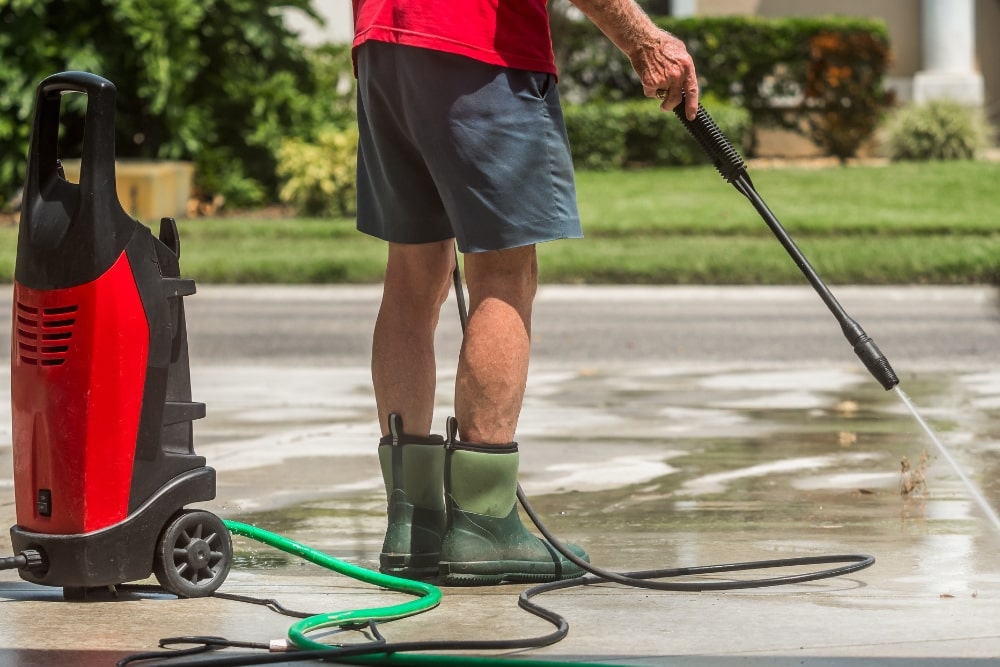
Pressure Washer Care
Make sure to run your pressure washers with the right amount of water constantly being supplied to the pump. If there is not enough water this can cause premature damage to the pump. Similarly, when shutting down your pressure washer for storage, it is important to make sure that all water is drained from the unit. Leftover water can cause hoses to break and machine parts to rust.
Additionally, when selecting the appropriate cleaning solution for your pressure washer, always follow the manufacturer’s recommendations. Using the wrong detergent or chemicals can lead to damage to the pump, hoses, and other components. It’s crucial to choose cleaning agents that are compatible with your specific pressure washer model to ensure optimal performance and longevity.
Regularly inspect and replace worn or damaged hoses and nozzles, as they play a crucial role in maintaining the pressure and efficiency of the machine. Moreover, store your pressure washer in a cool, dry place to prevent any potential freezing during colder seasons, which could result in damage to the pump and other components. Adhering to these comprehensive best practices will not only enhance the lifespan of your pressure washer but also contribute to its consistent and effective cleaning performance.
Floor Machine Care
Make sure to fully attach your drive blocks to the drive of your floor machine. Doing so will prevent damage to the drive block when you go to start the machine. If you are using a dual speed machine, have it set to a lower speed.
Moreover, regularly inspect the condition of the brushes or pads on your floor machine and replace them as needed. Worn or damaged brushes can compromise the machine’s cleaning efficiency and may result in uneven or incomplete floor cleaning. It is also advisable to keep the machine’s vacuum system clean and clear of debris to maintain optimal suction power.
When transitioning between different types of flooring, adjust the machine’s settings accordingly to ensure effective cleaning without causing damage. Additionally, incorporate a routine maintenance schedule that includes lubricating moving parts, checking belts, and tightening loose bolts to prevent wear and tear. Providing proper training to operators on the correct usage and maintenance procedures is crucial to maximize the longevity and performance of your floor machine, ultimately contributing to a well-maintained and polished floor surface.
Nika Sales- Industrial Cleaning Machine sales and Maintenance Experts
If you take the time to care for your machines and maintain them regularly, they will take care of you! Reach out if you have any questions or if you would like a quotation on either servicing or purchasing industrial cleaning equipment!
